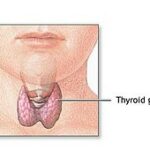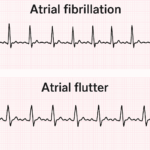“This post contains affiliate links, meaning I may earn a small commission if you make a purchase through these links, at no additional cost to you. Your support helps keep this content free—thank you!”
Introduction
Have you ever wondered if minor health issues like fatigue, weight loss, or headaches might be signaling something more serious? Recognizing early health warnings is crucial for catching illnesses before they progress. Early detection not only improves the success of treatment but can also prevent long-term complications. In this article, we will discuss seven key health signals you should not ignore and offer ways to stay proactive about potential health risks. We’ll also touch on important aspects like blood sugar control, nerve damage, and cardiovascular health, which can impact conditions such as diabetes.
Fatigue: A Warning Sign for Diabetes and Heart Disease that Should not be Ignored

Feeling tired after a long day is normal, but when fatigue becomes chronic and unexplained, it could point to underlying health conditions such as Type 2 diabetes or heart disease. Fatigue in individuals with diabetes often occurs due to insulin resistance, where the body struggles to use insulin effectively, leading to unstable blood sugar levels blood sugar control(American Diabetes Association, 2024). In cases of heart disease, fatigue can arise when the heart is unable to pump blood efficiently, resulting in less oxygen reaching your body’s tissues.
For women, especially during pregnancy, fatigue might indicate gestational diabetes, a condition affecting blood sugar control during pregnancy. Regular A1C tests and blood sugar monitoring are crucial for maintaining pancreatic health and avoiding complications like diabetic neuropathy. A healthy diet for diabetes, combined with exercise for diabetes, can support better energy levels and help manage both diabetes and heart health.
Supports Healthy Blood Sugar Levels Within the Normal Range!
Unexplained Weight Loss Should not be ignored, It Could Signal Cancer or Thyroid Disease?
Unintended weight loss may seem beneficial at first, but it can be a sign of more serious health problems. Conditions such as cancer or hyperthyroidism can cause sudden, unexplained weight loss. For people with Type 1 diabetes, unexplained weight loss occurs when the body cannot produce enough insulin, leading to a breakdown of fat and muscle for energy. Insulin therapy can help manage this issue by stabilizing blood sugar levels and preventing the body from using its own tissue for energy.
Weight management for diabetes is critical for controlling blood sugar and preventing obesity, a major risk factor for Type 2 diabetes. A balanced diet that includes natural remedies for diabetes, like cinnamon and fenugreek, may help regulate blood sugar. Fenugreek benefits include improved insulin sensitivity and better blood sugar control, making it a valuable addition to a diabetes management plan. Consistent blood sugar monitoring is essential to detect significant weight changes that could signal a deeper health issue.
Shortness of Breath: Early Indication of Respiratory or Cardiac Issues
Shortness of breath during everyday activities, such as climbing stairs or walking, could be a red flag for respiratory conditions like chronic obstructive pulmonary disease (COPD) or asthma, but it can also suggest cardiovascular issues. Heart failure, where the heart struggles to pump blood efficiently (CHF), may cause breathlessness, especially during physical activity. This can be a dangerous symptom for individuals with diabetes, as there is a close link between cardiovascular health and diabetes (American Heart Association, 2024).
Diabetes can increase the risk of peripheral artery disease, a condition that causes narrowed arteries and poor blood circulation. Exercise for diabetes is important for improving heart and lung function and reducing the risk of cardiovascular complications. Incorporating cardiovascular screenings and blood sugar monitoring into your routine can help you stay ahead of any serious issues.

Frequent Infections: Symptom of Immune System Disorders
If you find yourself getting sick more often than usual, it could indicate a weakened immune system. Diabetes, particularly when blood sugar is poorly controlled, can impair immune function and increase susceptibility to frequent infections. Individuals with diabetes must focus on consistent blood sugar control to reduce this risk. Poor blood sugar regulation can also lead to more severe conditions, such as nerve damage from diabetes and peripheral artery disease, which further compromise health.
(American Academy of Allergy, Asthma & Immunology, 2024).
In addition to proper blood sugar control, a balanced diet and supplements like Vitamin C, D, and Zinc can support immune function. Diabetes complications like diabetic neuropathy can also increase the risk of infections, particularly in the extremities, where poor circulation due to nerve damage is common. Regular medical check-ups and screenings for diabetes complications can help identify and manage these risks early on.
“Boost your immunity naturally—order now and support your body’s defenses with Immune Complex!”
Persistent Headaches: Linked to High Blood Pressure or Neurological Conditions
Occasional headaches are common, but frequent or severe headaches may point to high blood pressure(hypertension) or neurological issues. Persistent headaches in people with diabetes might indicate poor blood sugar control , which can affect blood vessels and increase the risk of stroke. High blood pressure, if untreated, can lead to other diabetes complications such as cardiovascular disease or stroke (Mayo Clinic, 2024).
Managing both blood sugar and blood pressure is essential to prevent serious outcomes. Incorporating a healthy diet for diabetes (healthy diet for diabetes) and regular exercise can help manage both conditions. Supplements like turmeric, known for its anti-inflammatory properties, may reduce inflammation, contributing to fewer headaches and better overall health for people managing diabetes.
Sudden Changes in Vision: A Warning for Diabetes or Stroke
Sudden blurriness or difficulty seeing can be an alarming symptom and should not be ignored. Vision changes are often a sign of diabetic retinopathy, a complication of high blood sugar levels damaging the blood vessels in the eyes. This condition is particularly common in individuals with poorly controlled diabetes. Strokes, another serious concern, can also impair vision if they affect areas of the brain responsible for processing visual information (American Academy of Ophthalmology, 2024). People with diabetes should undergo regular eye exams to monitor for signs of diabetic retinopathy. Blood sugar monitoring and consistent hemoglobin A1C(HbA1c test are part o early interventions can prevent irreversible vision loss, so it’s important to stay vigilant and prioritize both eye health and blood sugar control.
Chest Pain: An Early Indicator of Heart Disease

Chest pain is one of the most concerning symptoms of heart disease and should be taken seriously. It may indicate a blockage in the arteries that supply blood to the heart, which can lead to a heart attack if left untreated. It can also point to conditions like angina or a pulmonary embolism (American Heart Association, 2021).
For those with (Type 2 diabetes) or insulin resistance, maintaining a healthy weight (weight management for diabetes) and managing blood sugar are key to reducing cardiovascular risks. Supplements like krill oil, rich in omega-3 fatty acids, can support heart health by reducing inflammation and maintaining proper cholesterol levels. Weight management for diabetes (weight management for diabetes), combined with regular cardiovascular screenings, is essential for preventing serious complications.
The Role of Medical Screenings in Detecting Early Signs of Illness
Medical screenings are critical for detecting the early signs of medical conditions before symptoms become severe. Routine check-ups, blood tests, and imaging exams can help uncover hidden health issues. For example, an Hgb A1c test can detect prediabetes or early-stage diabetes. Cardiovascular screenings assess cholesterol, blood pressure, and other markers that can predict heart disease risk (National Institutes of Health, 2024).
FIT Colon Cancer Screenings are also a crucial part of early detection, particularly for individuals over the age of 45. Men’s and women’s health overall screenings offer a comprehensive check of cardiovascular, immune, and digestive systems, ensuring early detection of early signs of medical conditions that can be treated effectively when caught early.
How Natural Vitamin Therapy Can Help Prevent Chronic Illness
Incorporating natural vitamins into your daily routine may help prevent chronic illnesses by supporting overall health and immune function. Vitamins like C, D, and E are known to boost immune response and protect the body against oxidative stress, which is a factor in the development of chronic diseases. Omega-3 fatty acids, found in supplements like krill oil, can reduce inflammation and improve cardiovascular health.
Turmeric is an anti-inflammatory supplement often used to treat arthritis, helping to relieve pain and reduce joint swelling. Studies show that certain vitamins, when used as part of a balanced, healthy lifestyle, may reduce the risk of cancer and heart disease (JAMA Network, 2024). Additionally, managing stress through stress support supplements can contribute to better mental and physical health, lowering the risk of chronic early signs of medical conditions.
FAQ Section
- What are the common early signs of diabetes?
Persistent fatigue, frequent urination, excessive thirst, and blurred vision are common early signs of medical conditions like diabetes. - How can frequent headaches indicate high blood pressure?
Frequent headaches, especially in the morning, may be linked to high blood pressure, one of the early signs of medical conditions that can strain blood vessels. - Why is unexplained weight loss concerning?
Unexplained weight loss could signal early signs of medical conditions like cancer, thyroid problems, or diabetes when you lose weight without trying. - When should I seek medical help for shortness of breath?
If you experience shortness of breath during routine activities, it could be an early sign of medical conditionslike respiratory or heart problems. - Can persistent infections indicate a weakened immune system?
Yes, frequent infections can be early signs of medical conditions like immune disorders or diabetes, which weaken your body’s defense system. - How do vision changes relate to diabetes?
Vision changes, such as blurriness, can be early signs of medical conditions like diabetic retinopathy caused by high blood sugar damaging the eye’s blood vessels. - What does chest pain typically signal?
Chest pain is a major warning sign of heart disease, one of the most critical early signs of medical conditions, and should be addressed immediately. - Are there routine screenings that can detect early signs of illness?
Yes, screenings like blood tests, Hgb A1c for diabetes, and cardiovascular screenings can detect early signs of medical conditions before they become severe. - How can vitamin therapy help prevent chronic diseases?
Vitamins D, C, and Omega-3s help support immune health and reduce the risk of chronic illnesses like heart disease. - What should I do if I experience any of these symptoms?
You should see a healthcare provider to assess symptoms early and get the appropriate tests and treatments.
Conclusion;
In conclusion, the symptoms of fatigue, unexplained weight loss, shortness of breath, frequent infections, persistent headaches, and sudden changes in vision should not be overlooked, as they can serve as early warning signs for serious health conditions such as diabetes, heart disease, thyroid disorders, or even cancer. By maintaining proper blood sugar levels, undergoing regular medical screenings, and adopting a healthy lifestyle that includes balanced nutrition, exercise, and natural supplements, individuals can mitigate these risks and improve their overall health. Early detection and proactive management of these symptoms are key to preventing chronic illnesses and promoting long-term well-being.
References
- American Academy of Allergy, Asthma & Immunology. Recurrent Infections and Immunodeficiencies. 2024, www.aaaai.org.
- American Diabetes Association. Diabetes Symptoms. 2024, www.diabetes.org.
- American Heart Association. Warning Signs of Heart Attack, Stroke, and Cardiac Arrest. 2024, www.heart.org.
- American Academy of Ophthalmology. Diabetic Retinopathy. 2024, www.aao.org.
- Mayo Clinic. Unexplained Weight Loss: Symptoms and Causes. 2024, www.mayoclinic.org.
- Mayo Clinic. Headaches: Symptoms and Causes. 2024, www.mayoclinic.org.
- National Institutes of Health. Medical Screenings: Early Detection of Chronic Diseases. 2024, www.nih.gov.
- JAMA Network. Vitamins and Chronic Disease Prevention. 2024, jamanetwork.com.
Looking for more health tips and recommendations? Check Out Our Reference Archive: Must-Read Blog Article Post
Medical Disclaimer
The information provided on this website is for informational purposes only and should not be construed as medical advice. It is not intended to replace professional medical consultation, diagnosis, or treatment. Always seek the advice of your primary care physician, nurse practitioner, or other qualified healthcare provider with any questions you may have regarding a medical condition.
Before starting any new exercise, regimen, or taking supplements, particularly if you have medical conditions or are on any prescription drugs, it is essential to consult with your primary care provider. They can help you assess whether any changes are safe and appropriate for your health status.
Do not disregard professional medical advice or delay seeking it based on information from this website. Never discontinue or change any prescribed medications without first consulting your healthcare provider.
Daily Inspiration
Embrace The Journey, Not Just The Destination.
— Marjorie DiCarlo, M.D., Ph.D., M.P.H.

Miniature Pinscher
🌱 More Wellness Reads 🌱
 The Dangerous Truth About Untreated Hyperthyroidism
The Dangerous Truth About Untreated Hyperthyroidism
 Mastering Diabetes for a Healthier Life: Essential Facts You Need to Know
Mastering Diabetes for a Healthier Life: Essential Facts You Need to Know
 How to Take Control of Hypertension Before It controls You
How to Take Control of Hypertension Before It controls You
 “Empower Your Heart: Proactive Solutions for Atrial Fibrillation Management”
“Empower Your Heart: Proactive Solutions for Atrial Fibrillation Management”
Powered by YARPP.
